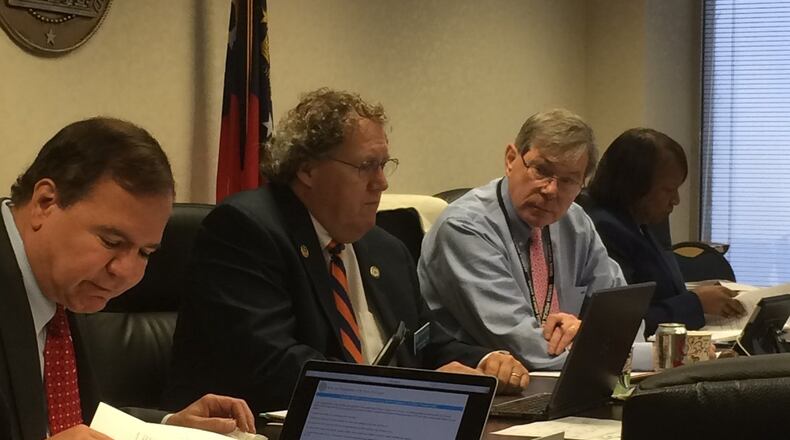Every doctor in Georgia is now required to get training on proper prescribing of opioids, under a rule approved Thursday by the Georgia Composite Medical Board.
“Almost everybody in the state knows we are in the midst of an opioid epidemic right now,” said Dr. E. Dan DeLoach, a plastic surgeon from Savannah who is the chairman of the medical board. “We’re seeing the number of people addicted to opioids increase on an annual basis. We’re seeing the number of people dying from an opioid overdose increase on an annual basis.”
Opioids killed more than 33,000 people in 2015, according to the U.S. Centers for Disease Control and Prevention.Since 1999, the amount of prescription opioids sold nationally nearly quadrupled, the CDC has reported, even though Americans did not report a major change in pain during that same period.
The new training required for Georgia doctors will cover instruction on the guidelines for proper prescribing, as well as on recognizing signs of abuse of the highly-addictive drugs.
As a result of the training, DeLoach said, the medical board hopes that doctors may cut back opioid prescribing, something he said many Georgia doctors have already done as the problems associated with the medications have become widespread.
“I’ve decreased the number of opioids that I write probably by 70 or 80 percent,” DeLoach said. “There are other agents that are available. You can also better tailor the number of tablets that you are prescribing so that there is not a lot of medication that is left over that could fall into the wrong hands.”
The Medical Association of Georgia, the state’s lobby arm for physicians, opposed the requirement. The group said it is concerned that mandating continuing education on a single issue could lead to requirements for specific training on other issues as well. MAG said it supported voluntary training on opioids.
Doctors across Georgia have been disciplined or criminally charged for improper prescribing. Among them, Clayton County psychiatrist Dr. Narendra K. Nagareddy last year was charged with murder in the overdose deaths of three patients, although authorities say they suspect he overprescribed medication to 36 patients who died. His criminal case is pending. More than a dozen other Georgia-licensed physicians have been sentenced to federal prisons since 2014 for violations involving opioids or other addictive substances.
In another attempt to address the opioid crisis, the state’s physicians will soon have to check a pill-tracking database before giving a patient a prescription for opioid medications, which are used to treat pain, or benzodiazepine drugs, which are generally used to treat anxiety. Opioids can be especially dangerous when taken along with benzodiazepine medications.
Georgia pharmacists were already required to enter prescriptions in a state database that was created to help combat the abuse of prescription medications, but few doctors used it voluntarily. Under legislation approved this year by the Georgia General Assembly, by year’s end doctors are required to register to use the database.
Beginning July 1, 2018, doctors must check the database before writing most prescriptions for the potentially-dangerous drugs.
The database will let a physician know if their patient is getting similar prescriptions from another doctor.
A tougher bill sponsored by state Sen. Renee Unterman, R-Buford, failed after opposition from the doctors' lobby. That bill would have imposed harsh criminal penalties for doctors who failed to check the database before prescribing.
“They won, they got it weakened,” said Unterman, chairwoman of the state Senate’s Health and Human Services committee. “My thing was I’m trying to fight an epidemic.”
The version that passed calls for reporting doctors to the state medical board if they fail to check the database. The bill also moved oversight of the database to the state Department of Public Health. Previously, the Georgia Drugs and Narcotics Agency maintained the database.
Unterman said this week that it’s critical for the state’s physicians to do their part in combating the public health crisis driven by opioid addiction.
“If you look at how people became addicted and used heroin, the statistics show that they started out with prescription meds,” Unterman said. “The whole root of our epidemic of opioids and herion abuse that we’re in now started out with the proliferation of doctors prescribing oxycontin, and then the pills mills popped up.”
About the Author
Keep Reading
The Latest
Featured




